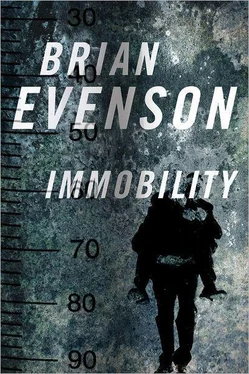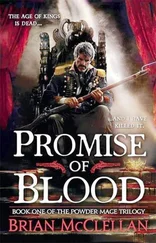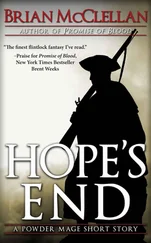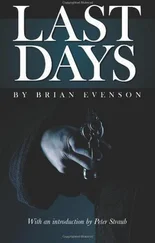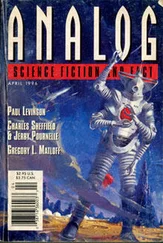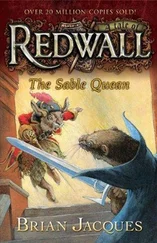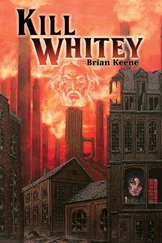When Qatik weaved or stumbled, Horkai would shake his shoulder or strike him atop the hood, and he would straighten up a little. They kept on going, waiting for night to end.
* * *
AND THEN SUDDENLY HE WAS BEGINNING to see again, the darkness leaking away and revealing the things hidden within it. At first it was only the shape of Qatik’s hood in front of him, but slowly the world became more and more distinct, extending itself around them. Still hours until sunrise, he thought, but now at least it was coming. Now at least they could see the road.
Qatik had sped up just a little, not much. He was going forward, stumbling a bit, still weaving a little, clearly confused, sedated.
“Shall I talk to you?” Horkai asked him, realizing how tired he was himself. His eyes felt like they had been squeezed to bursting.
“I feel,” said Qatik, “like I’m walking…” And then he trailed off.
“You are walking,” said Horkai.
“… underwater,” Qatik finished.
“Oh,” said Horkai. “Do you need to rest?”
Qatik didn’t bother to answer. They kept on, Qatik letting the slope carry him forward, Horkai from time to time shaking him, speaking to him, urging him on.
“Promise me,” said Qatik. “Promise me you will finish it. Promise me you will fulfill my purpose. Promise me you will sing to the others what I and Qanik did for them.”
“All right,” said Horkai. “I promise.”
“There is a signal pistol,” Qatik said. “A Molins Number 1. A Very pistol. On a belt inside my suit.”
“All right,” said Horkai.
“When I die, take it, and the signal flares,” said Qatik. “Pull yourself along, as far as you can go, then fire it. Light a fusee, too, so they’ll know where to find you. Maybe they will see and come for you.”
* * *
THE SUN CAME NERVOUSLY OUT, still estranged in dust and haze. The slope slowly leveled off, grew almost flat. Qatik moved forward only with the greatest effort now. He veered slowly off the edge of the road and onto the frontage road, but got tangled in the remnants of a barbed wire fence. It took all Horkai’s wits to get him untangled and keep him on his feet. But just when he thought they’d truly reached the end, Qatik tore free with a groan and they were off again, swaying ponderously down the road.
They passed an old salvage yard—unless it was something else and just looked like a salvage yard now. A tattered billboard, little left of it beyond its metal struts. A concrete wall with a window chopped into it, the opening obscured by a metal grille. Pile after pile of dust-covered corrugated piping, a Quonset hut collapsed and blown flat.
“How far away are we?” Horkai asked.
“Far,” said Qatik, forcing the word out. “Miles and miles.”
And indeed they walked on for what seemed like miles and miles, the sun rising above them, Horkai trying to stay focused, trying to keep Qatik going, goading him on. But he himself was exhausted, his head lolling, and there were a few moments when his hands, tired from hanging on to Qatik’s neck for so long, started to slip and he nearly slid off. He was hungry, starving, almost terminally thirsty. He tried not to think about it, tried to stay focused and in control.
They must still have had miles to go when, abruptly, Qatik came to a halt.
“Qatik?” said Horkai.
Qatik stood there swaying back and forth. He took another step, then another. Horkai breathed a sigh of relief that they were going again. But after a half dozen steps, Qatik stopped again.
“Keep going,” Horkai urged. “It’s not much farther. Your purpose is almost complete.”
He heard Qatik retching again in his suit, swaying and nearly toppling, and then the retching suddenly turned to a low, keening laugh.
“My purpose!” he said in a choked voice. “My purpose!”
He took another step and then fell to one knee. “Get up,” Horkai told him, striking him lightly on the hood, “get up,” and Qatik struggled, tried to get his leg back under him. And indeed, he was already on his way to standing up again when the other leg went and he tipped slowly over and fell.
Horkai rode him down, letting Qatik’s body absorb the fall, disentangling himself once they were down. Qatik was lying on one side, moving his hands, motioning with his fingers, almost as if he were typing, but making no effort to get up.
Horkai rolled him faceup and leaned in over him. He tried to catch a glimpse of his face through the faceplate, but it was too filthy with blood spatter for him to see much of anything inside. It was as if someone had been murdered inside—which, thought Horkai, was the case.
“I’m sorry,” said Horkai, and was surprised to realize how sincerely he meant it. Qatik tried to raise his hands but couldn’t manage it and let them fall. He tried to speak, but his voice was too soft for Horkai to hear. He moved his ear closer to the speaker and asked him to repeat it.
“Hood,” mouthed Qatik.
What about it? wondered Horkai, and then suddenly got it. “You want me to remove your hood?” he asked.
When Qatik said nothing, Horkai fished a knife out of the backpack and began cutting through the seam sealant around the hood’s edge. Since Qatik still said nothing, he assumed it was what he wanted.
The seal broke away only awkwardly, and he had to roll the flap back and work the fasteners open. His fingers clumsily loosened the hood.
The inside of the hood reeked of blood and vomit. Qatik’s thick face was covered with bruises and sores, the flesh itself beginning to lose consistency. His eyes were half-open, fluttering. He looked fragile, extremely vulnerable. Horkai touched the side of his head and cupped his jaw, and Qatik opened his eyes and gave him a worried and frightened look. A look so painfully intimate, it made Horkai want to look away, but he found that he could not.
He saw Qatik’s lips move, but heard nothing. He brought an ear down until it was almost touching Qatik’s lips and stayed there, hovering, listening until Qatik whispered again.
“Morphine,” he whispered.
Horkai moved his head back and nodded, watched Qatik’s eyes slip closed. He rummaged through the backpack until he found a sheathed needle, a syringe, and the remaining three ampoules of morphine.
He filled the chamber with the first ampoule and injected it into Qatik’s stomach beside the wound, then stayed there waiting. He was about to throw the hypodermic away when he again met Qatik’s eyes. Despite the way the man’s gaze was already going glassy, Horkai still sensed a mute appeal in it.
He filled the hypodermic with the second ampoule and injected it in the same spot as the first. He stayed looking at the third ampoule, holding it in one hand, the hypodermic in the other. Finally he made up his mind and broke the glass tip off, inserted the needle and drew the morphine up into the reservoir. He hesitated for just a moment over the stomach wound, bringing the needle down to touch the skin and then moving it up higher, injecting it this time into the artery throbbing weakly in Qatik’s neck.
A moment later Qatik was dead.
HOURS LATER, PULLING HIMSELF along backwards with his arms, night coming on, his hands numb and bloody, he found himself thinking about that moment, that decision. He had been watching Qatik’s face as he depressed the plunger, saw almost instantly his already glazed eyes go loose in the sockets, all the tiny little movements of his face falling still. Not more than a few seconds had passed before he was certain that Qatik was dead.
After only a minute or two, the body had already begun to change, becoming a corpse. The skin of the face had grown noticeably paler and the blood had begun to pool, the now bloodless skin draping strangely on the face so that the nose and even the sockets of the eyes became increasingly prominent. He was surprised to find that the limbs weren’t stiff at all, not yet, that the muscles instead were completely relaxed.
Читать дальше
